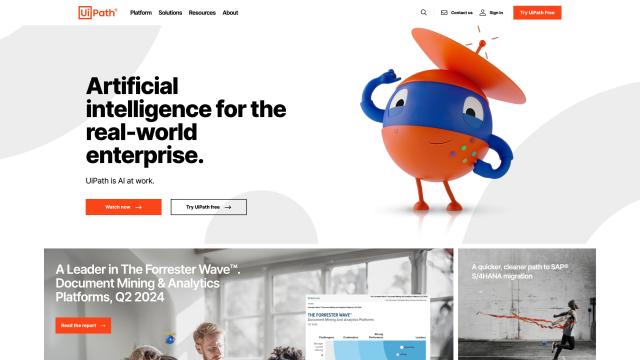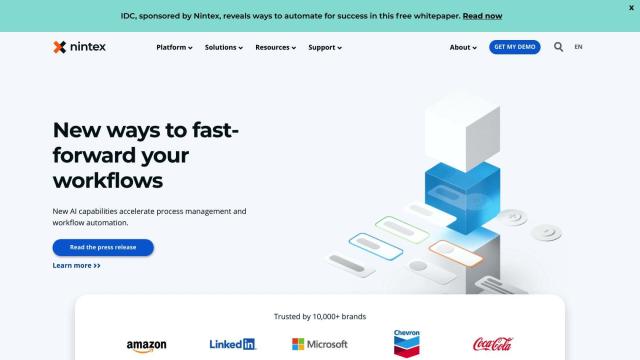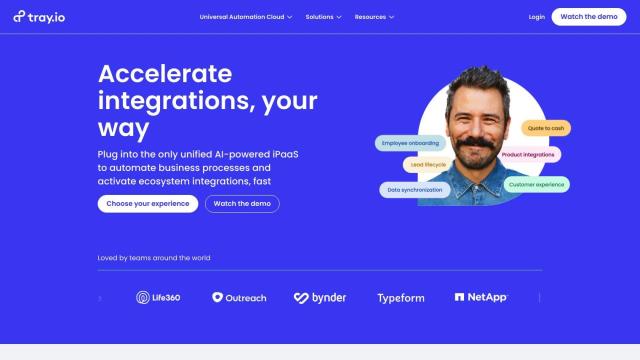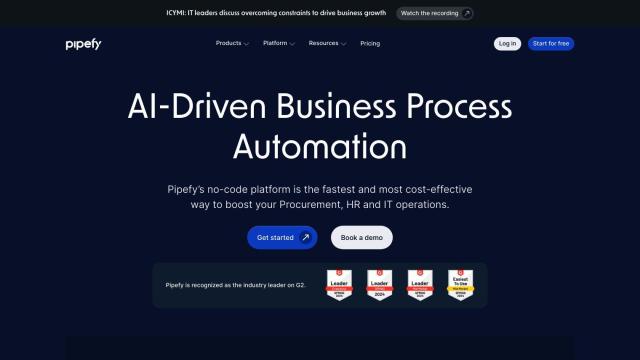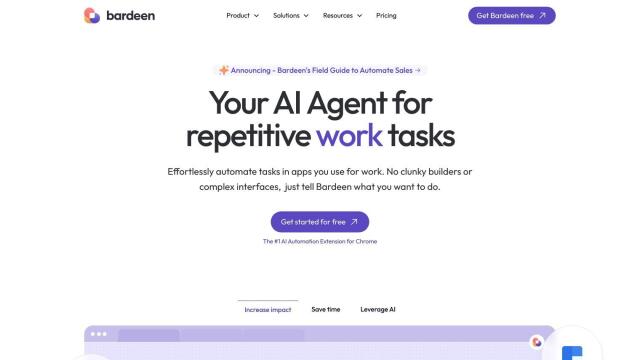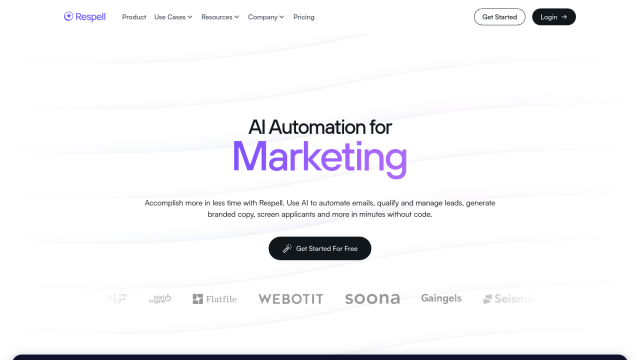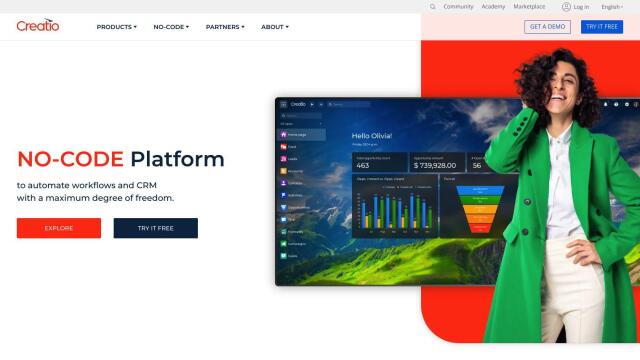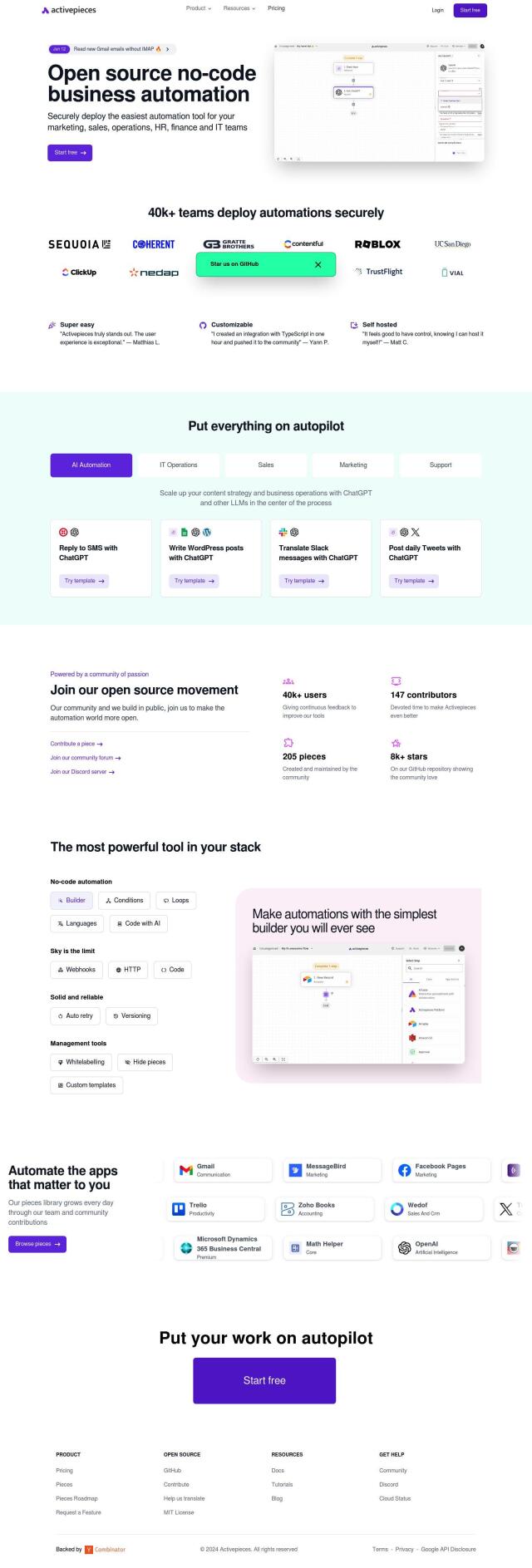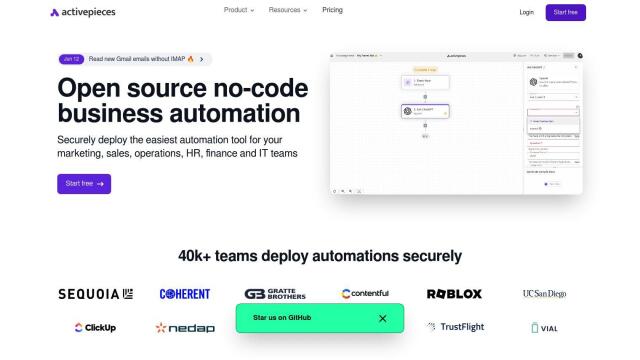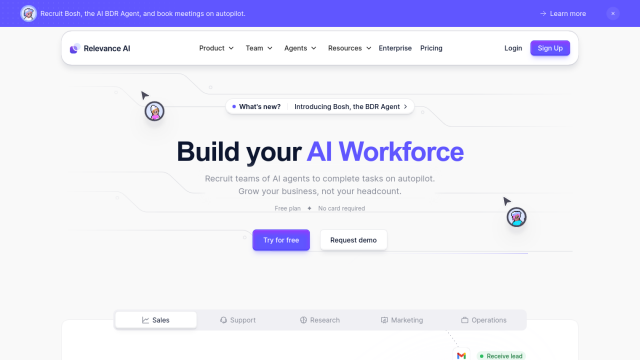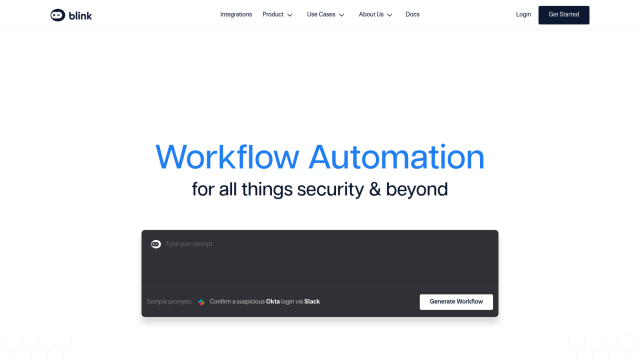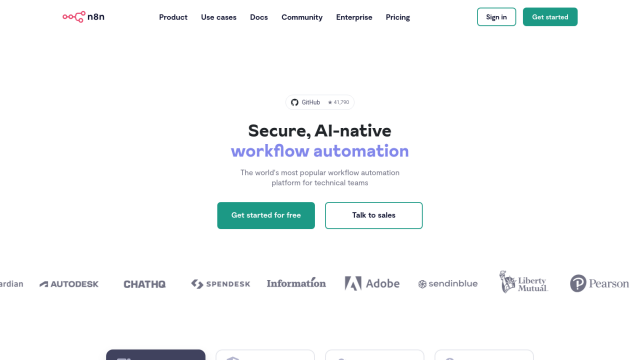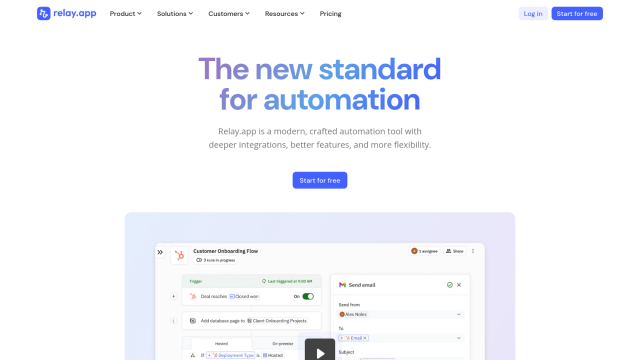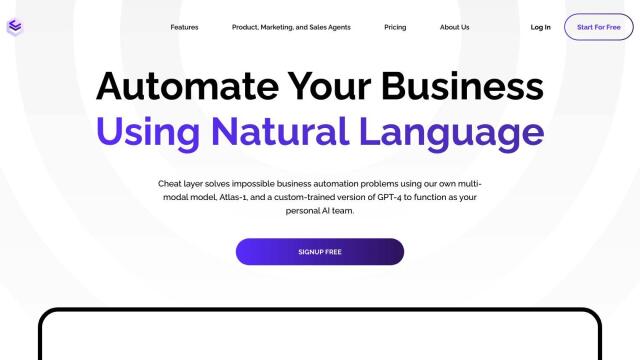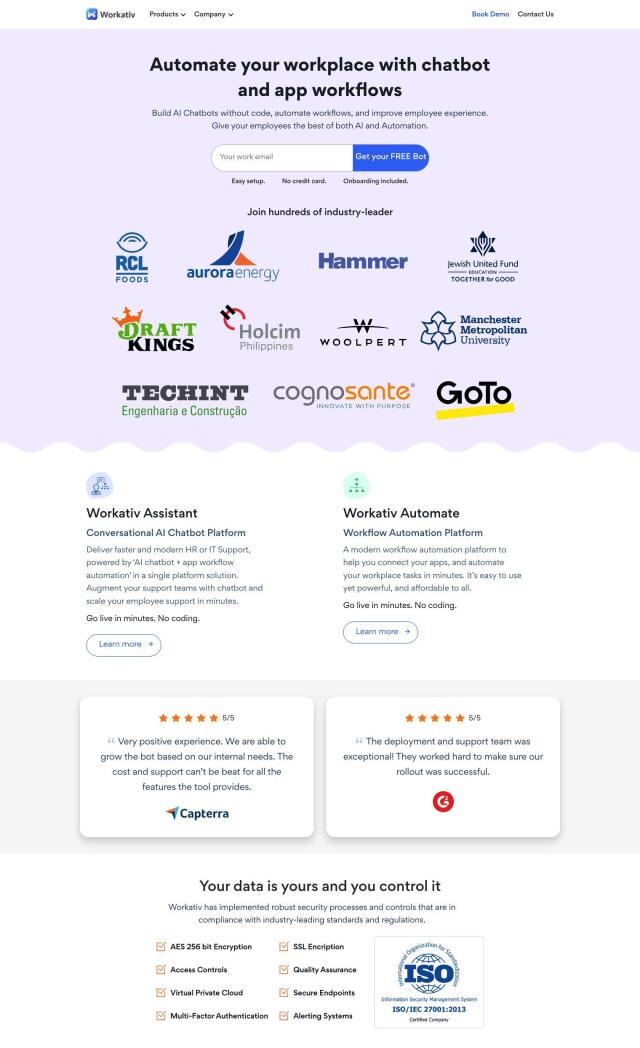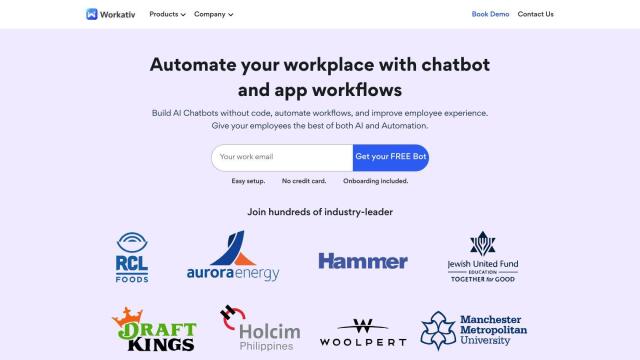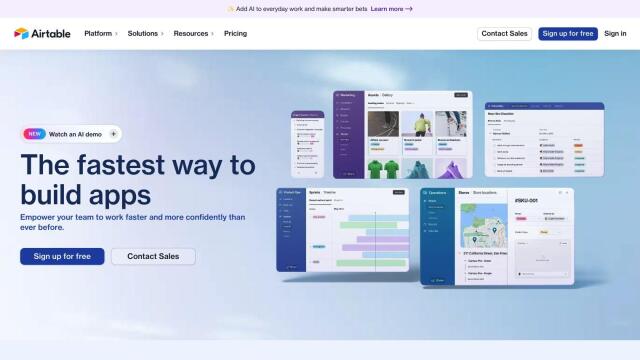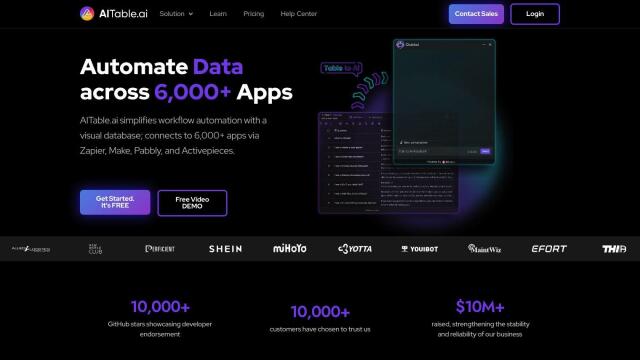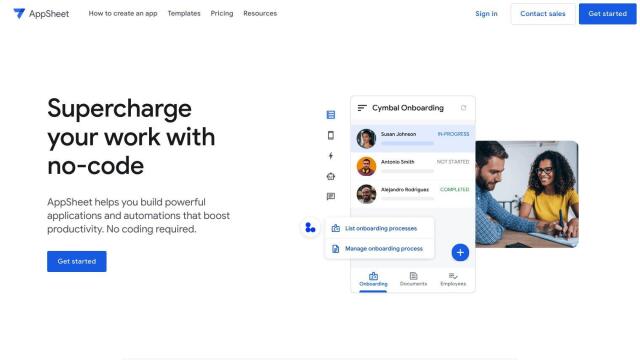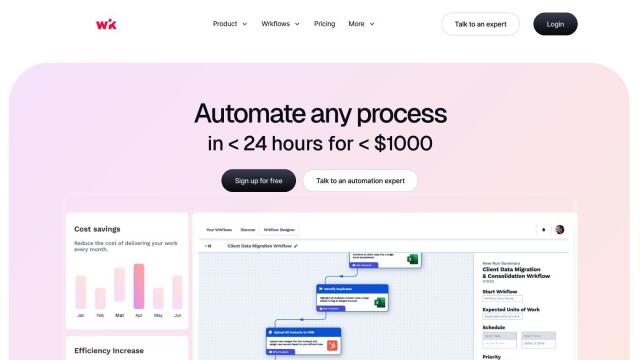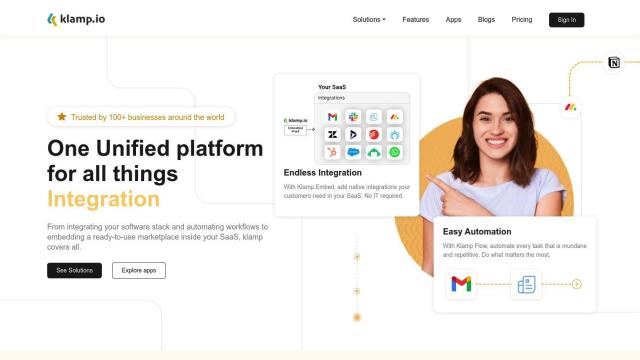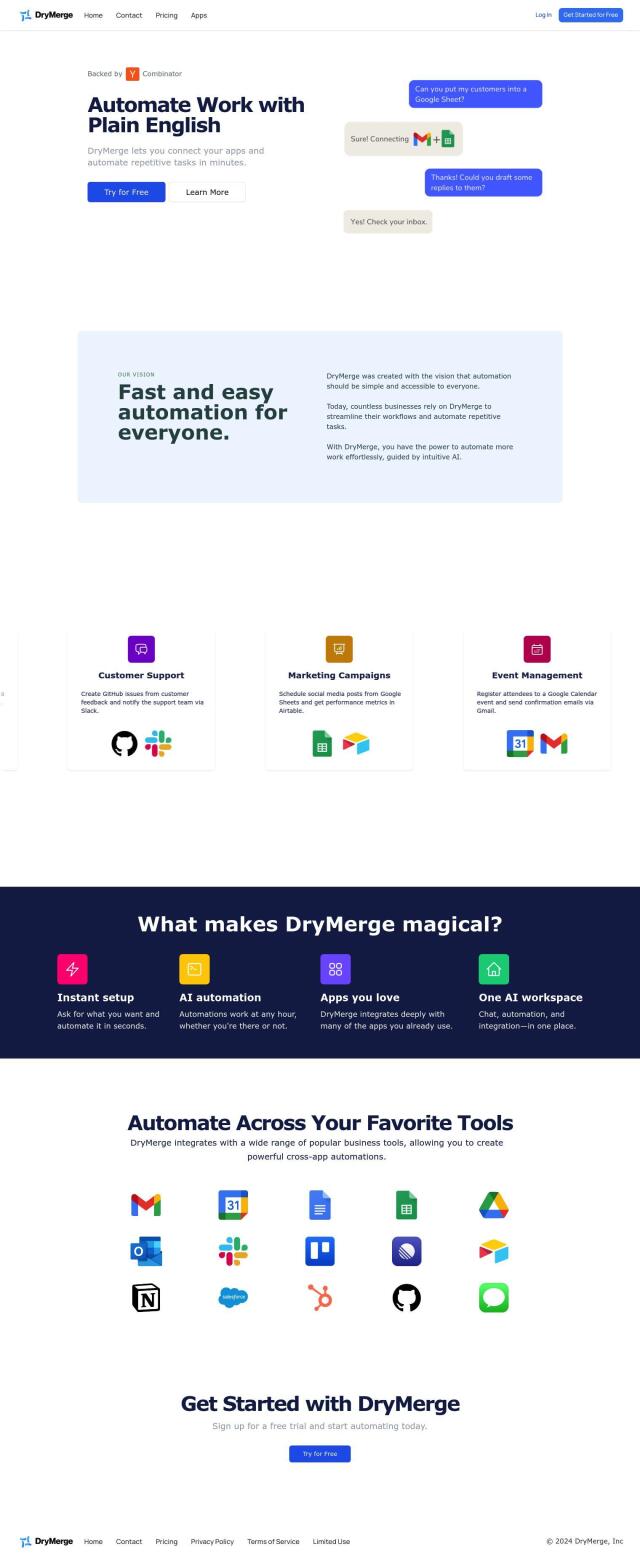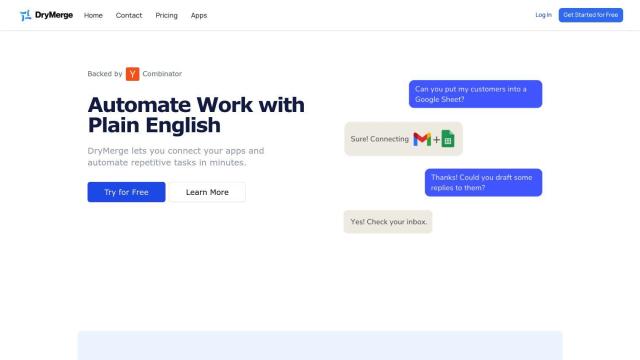Question: Can you suggest a tool that enables me to create and automate complex workflows with minimal IT involvement?

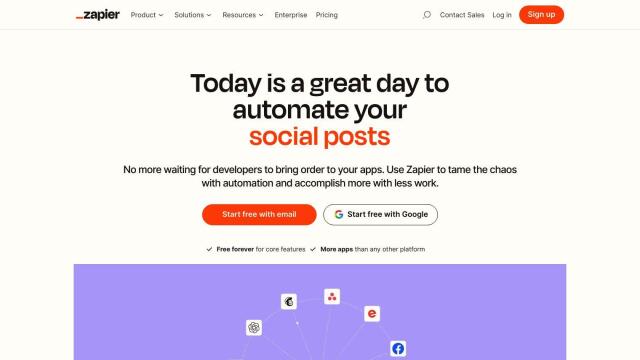
Zapier
For automating complex workflows with a minimum of IT involvement, Zapier could be a good option. Zapier has connections to more than 7,000 apps, and you can use it to automate things like lead tracking, sales pipeline management and customer service. It's got AI automation and enterprise-level security, so it's good for startups, small and medium-size businesses and enterprises. With its interface and several pricing tiers, you can get started automating your workflows quickly without having to write a line of code.

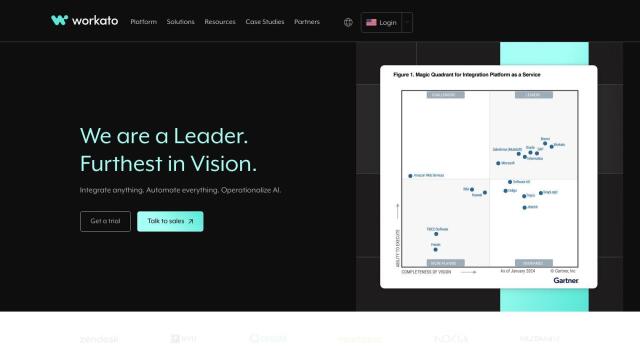
Workato
Another strong contender is Workato, which offers a single platform for integrating and automating processes across multiple applications and services. It's got more than 1200 pre-built connectors and accelerators, and it's designed to help with tool sprawal by concentrating automation. Workato's AI abilities and horizontally scalable architecture make it easy to monitor and secure workflows, and it's got flexible pricing and a large community.

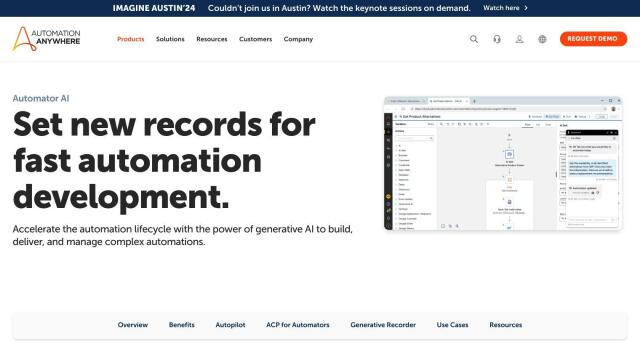
Automation Anywhere
Automation Anywhere offers a full-fledged platform that combines AI, automation and RPA for intelligent process automation. It's a cloud-native platform geared for enterprises looking to modernize a range of operations, including IT, finance and customer service. It's got guided expertise and deep integration with leading platforms, and it's designed to automate complex processes securely and efficiently.

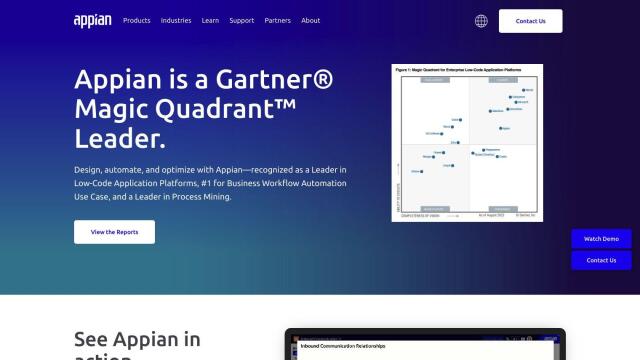
Appian
For low-code options, Appian is a strong contender, letting both technical and nontechnical people design and automate workflows. It can integrate systems, manage data and offer process mining to spot bottlenecks. Appian's architecture is designed to scale and offer high availability, so it can handle a lot of transactions and users without flinching, and it's got built-in security.

